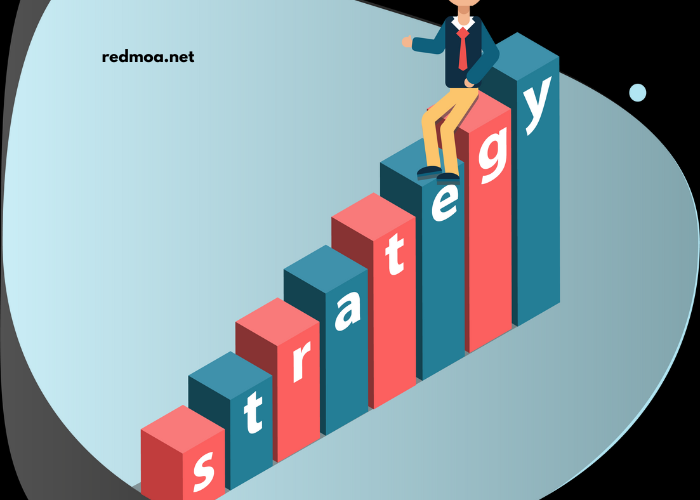In today’s rapidly evolving marketplace, business owners and entrepreneurs face challenges that require adaptability, foresight, and strategic thinking. While short-term success may be achievable with quick fixes or opportunistic strategies, long-term success necessitates a sustainable approach. Implementing effective business strategies that foster growth, stability, and innovation is essential for securing a prosperous future.
In this article, we will explore several key strategies that businesses can adopt to ensure long-term success, focusing on areas such as customer loyalty, innovation, financial management, employee development, and brand positioning.
The Importance of Long-Term Business Strategies
Before diving into specific strategies, it’s crucial to understand why focusing on long-term goals is important. Short-term gains may provide immediate rewards, but they often come at the expense of sustainable growth. Long-term business strategies allow companies to build a solid foundation, create competitive advantages, and adapt to changing market conditions.
Effective long-term strategies often focus on:
- Building lasting customer relationships
- Continuously improving products and services
- Leveraging technology and innovation
- Cultivating a positive company culture
- Enhancing financial stability
With these factors in mind, let’s take a closer look at some of the most effective business strategies for long-term success.
1. Cultivating Customer Loyalty
Building Strong Relationships with Customers
Customer loyalty is a cornerstone of long-term business success. When customers return time and time again, they not only contribute to steady revenue streams but also act as advocates for your brand. Developing strategies to retain customers should therefore be a top priority.
Personalized Customer Experience
In today’s digital world, customers expect personalized experiences. Businesses that offer tailored solutions, whether through custom products, individualized communication, or personalized customer service, are more likely to retain loyal customers. Collecting and analyzing customer data can help you anticipate needs, preferences, and behaviors, enabling you to create a more relevant and engaging customer experience.
Reward Programs and Incentives
Another powerful tool for fostering loyalty is creating reward programs that incentivize repeat purchases. Discounts, exclusive offers, and loyalty points can encourage customers to keep coming back. This not only strengthens the relationship with existing customers but can also turn them into brand ambassadors who recommend your business to others.
2. Investing in Innovation and Adaptability
Staying Ahead of Industry Trends
The business landscape is constantly evolving, with new technologies, processes, and trends emerging at an accelerated pace. To remain competitive, businesses must prioritize innovation and adaptability. By keeping a pulse on industry trends, businesses can identify new opportunities, respond to challenges, and adapt their strategies to meet changing demands.
Regular market research, attending industry conferences, and participating in networking events are all effective ways to stay informed. Companies that are proactive in adopting new technologies, automating processes, and exploring novel business models often achieve greater long-term success.
Fostering a Culture of Innovation
To truly embed innovation into the DNA of your business, it’s essential to create a culture that values creativity and experimentation. Encouraging employees to think outside the box, invest in continuous learning, and challenge the status quo can lead to new ideas, products, and solutions. In addition, forming partnerships with other innovative companies can help bring fresh ideas and technologies into your organization.
Agility in Business Operations
Adaptability is equally important. In a volatile market, businesses need to pivot quickly in response to new challenges or opportunities. Developing flexible business models that allow for rapid adjustments will help companies stay resilient, even during times of uncertainty.
3. Strong Financial Management for Sustainability
Building a Solid Financial Foundation
Financial stability is one of the primary factors that determine long-term business success. Without a strong financial foundation, even the most promising business models can fail. Establishing robust financial management practices early on is crucial for ensuring sustainability.
This involves maintaining a healthy cash flow, managing debt effectively, and reinvesting profits into growth initiatives. Having a strong financial strategy that includes budgeting, forecasting, and scenario planning will allow you to respond proactively to economic downturns or unexpected expenses.
Diversification of Revenue Streams
Relying on a single source of income can expose a business to unnecessary risks. Diversifying revenue streams allows a business to weather downturns in one area while benefiting from success in another. This could involve expanding product lines, targeting new customer segments, or exploring alternative business models, such as subscription services or online sales.
Cost Optimization and Efficiency
While it’s important to invest in growth, businesses must also focus on minimizing waste and optimizing operational costs. Streamlining processes, automating repetitive tasks, and negotiating better supplier contracts are just a few examples of how businesses can reduce overhead and increase profitability. Long-term success hinges on balancing growth with operational efficiency.
4. Employee Development and Retention
Attracting and Retaining Top Talent
A company’s workforce is one of its greatest assets, and investing in employee development is crucial for sustained success. Skilled and motivated employees drive innovation, provide excellent customer service, and help maintain high operational standards.
Developing a comprehensive recruitment strategy to attract top talent is essential. Offering competitive salaries, benefits, and professional development opportunities can help attract skilled employees. Equally important is creating a supportive work environment that values employee well-being, work-life balance, and career growth.
Continuous Learning and Development Programs
Investing in the development of existing employees is just as important as attracting new talent. Offering opportunities for skill enhancement, leadership training, and career advancement helps employees feel valued and motivated to contribute their best work. Additionally, a culture of continuous learning encourages employees to stay current with industry trends and contribute innovative ideas to the business.
Fostering a Positive Company Culture
A positive company culture leads to increased employee satisfaction, better retention rates, and improved performance. Leaders should focus on creating a work environment where employees feel respected, supported, and empowered. Regular feedback, recognition programs, and team-building activities can help reinforce a culture of collaboration and positivity.
5. Effective Marketing and Brand Positioning
Building a Strong Brand Identity
One of the key elements of long-term success is developing a distinct brand identity that resonates with customers. This involves defining your brand values, mission, and vision and communicating these clearly through marketing materials, your website, and customer interactions.
A strong brand identity creates a sense of trust and loyalty, making it easier to attract new customers and retain existing ones. When customers identify with your brand, they are more likely to choose your products or services over those of your competitors.
Digital Marketing and Social Media Strategy
In the modern business world, digital marketing is essential for long-term success. Having a well-rounded digital marketing strategy that includes search engine optimization (SEO), content marketing, email campaigns, and social media engagement can significantly boost your online visibility and customer engagement.
Social media, in particular, allows businesses to interact with their audience in real-time, build relationships, and gather feedback. A strategic social media presence can foster brand loyalty and help businesses respond to customer needs and concerns quickly.
Consistent and Authentic Messaging
Effective marketing is not just about reaching customers but also about building an authentic connection. Customers appreciate transparency and honesty, especially when it comes to brand values, product sourcing, and business practices. Consistently communicating your brand’s story and maintaining authenticity across all channels helps build trust and loyalty.
6. Strategic Partnerships and Networking
Forming Strategic Alliances
Strategic partnerships with other businesses can provide new avenues for growth, expand customer bases, and introduce valuable resources. Whether through joint ventures, co-marketing efforts, or supplier relationships, partnerships can be mutually beneficial and help businesses access new markets, technologies, or expertise.
Networking plays a crucial role in identifying and forming these partnerships. Attending industry events, joining professional organizations, and fostering relationships with other business leaders can open doors to opportunities that might not be available otherwise.
Expanding Global Reach
For businesses looking to scale globally, international partnerships are key to successful expansion. Global partnerships can help companies navigate new markets, understand local regulations, and adapt their products or services to meet regional preferences.
Conclusion: The Road to Long-Term Success
Achieving long-term success requires more than just implementing a few quick fixes. It demands a comprehensive approach that includes building strong customer relationships, embracing innovation, managing finances effectively, investing in employee development, and positioning your brand strategically. By adopting these business strategies, companies can secure sustainable growth, maintain their competitive edge, and adapt to the ever-changing marketplace.
Successful businesses are those that remain committed to continuous improvement, proactively address challenges, and stay focused on their long-term goals. With the right strategies in place, companies can thrive in the competitive and dynamic business environment, ensuring long-term success for years to come.





